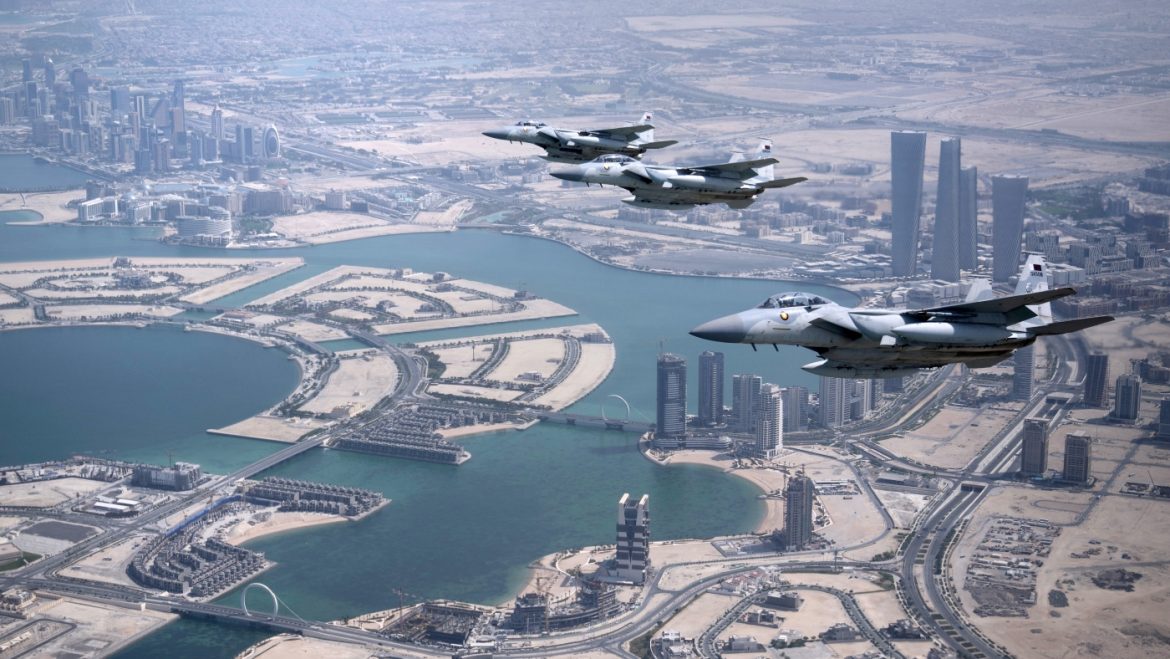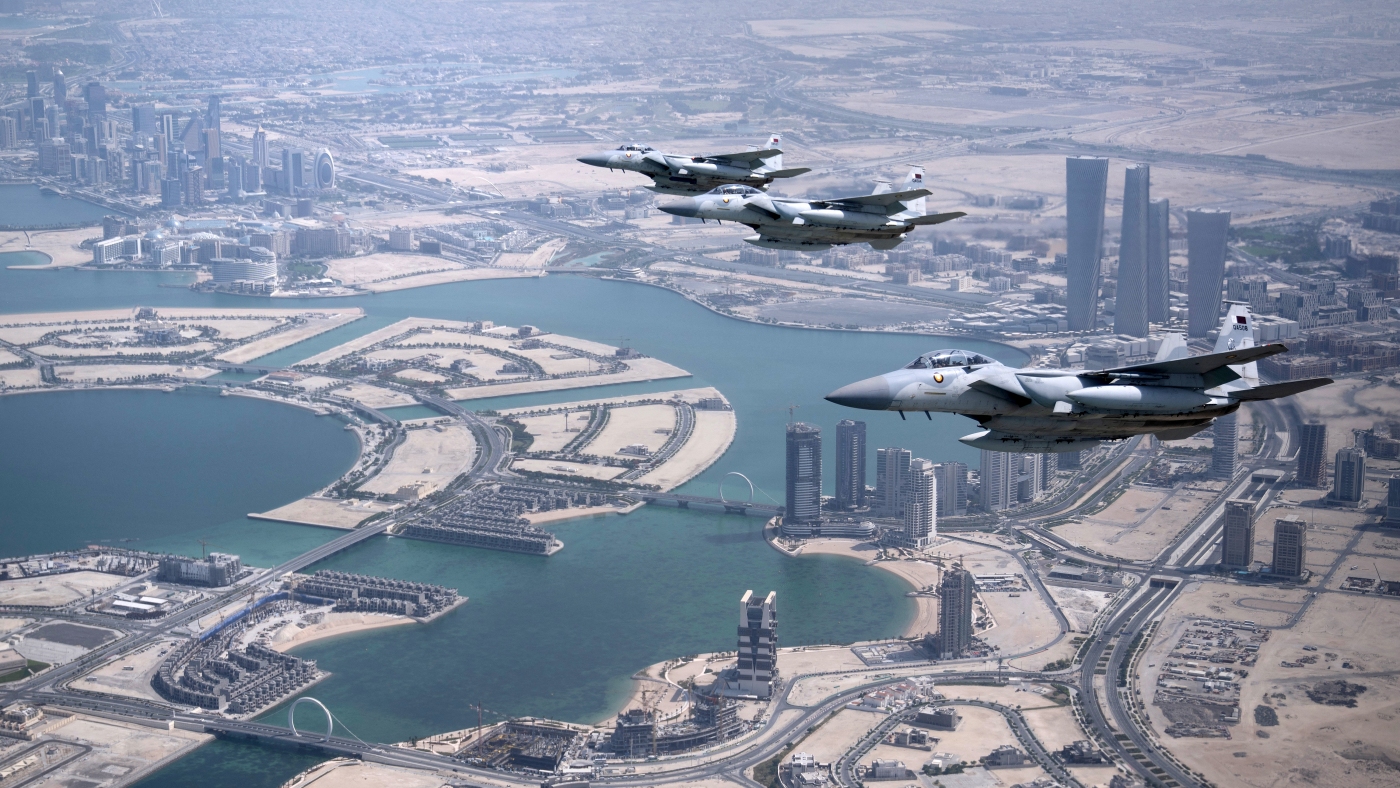The recent discourse surrounding President Donald Trump’s potential acceptance of a gift aircraft from the Qatari royal family encapsulates a complex intersection of national security, ethics, diplomatic relations, and political scrutiny. The debate, fueled by multiple news reports, expert analyses, and official statements, presents a multifaceted picture that warrants detailed exploration. This examination aims to dissect the various dimensions—security implications, ethical concerns, diplomatic nuances, and political ramifications—while contextualizing them within the broader framework of governance and international diplomacy.
The Proposal: A Gift of Luxury and Power
At the heart of the controversy lies the proposition that Qatar offers a used Boeing 747, purportedly a luxurious and capable aircraft, to serve as a replacement for or supplement to Air Force One. The offer, valued at approximately $400 million, is presented as a gesture of goodwill or diplomatic favor, contingent upon acceptance by the U.S. government. President Trump’s openness to this gift signifies a recognition of the strategic and symbolic stature such a move could procure. Nevertheless, acceptance of such a donation is far from a routine diplomatic courtesy; it involves careful legal, security, and ethical considerations.
Security Concerns: Risks and Vulnerabilities
One of the predominant issues raised pertains to national security. Experts, including intelligence officials and aviation analysts, emphasize that accepting a commercial or used aircraft from a foreign government, particularly one like Qatar known to have regional geopolitical interests, entails significant risks. These include potential vulnerabilities to cyber-espionage, sabotage, or covert influence.
Cybersecurity and Sabotage Risks: An aircraft supplied by a foreign state might harbor undisclosed surveillance devices or malicious modifications, whether hardware or software-based. Given the aircraft’s use as a mobile command center akin to Air Force One, any compromise could undermine national security, espionage operations, or intelligence gathering.
Operational Burdens and Resources: Aviation analysts note that retrofitting or validating the aircraft for presidential use would require substantial expenditure, time, and resources. The aircraft may need extensive modifications to meet security standards, secure communications systems, and presidential accommodations, thus imposing logistical and security burdens.
Potential for Exploiting Diplomatic Leverage: Foreign governments often use such gestures to cultivate influence or sway policy decisions subtly. Accepting a gift of this magnitude might inadvertently grant Qatar a privileged diplomatic foothold, raising concerns about undue influence or the appearance thereof.
Ethical and Legal Dimensions: The Emoluments Clause and Public Trust
Ethics and legality are at the core of debates about accepting gifts from foreign governments. The Emoluments Clause of the U.S. Constitution prohibits federal officials from accepting gifts, payments, or benefits from foreign states without congressional approval. Critics argue that accepting such a valuable gift could violate this clause or, at the very least, create perceptions of conflict of interest.
Potential Legal Violations: Lawmakers, including critics like Rep. Jamie Raskin, assert that gifts exceeding a certain monetary threshold require congressional approval. The “palace in the sky” reference—an analogy to a lavish diplomatic property—further underscores concerns about the potential for corruption or perceived undue influence.
Public Perception and Trust: Accepting a luxury aircraft from a foreign source may erode public trust in the presidency, fueling doubts over the administration’s integrity. It also raises questions about transparency, especially if the gift involves future policy favors or diplomatic accommodations.
The Emoluments Debate in Context: President Trump had previously faced scrutiny regarding emoluments issues. This instance echoes ongoing concerns about the intersection between personal, corporate, and national interests in government decisions.
Diplomatic Significance and International Messaging
Accepting or rejecting the gift carries significant diplomatic weight. On one hand, accepting a donation could foster goodwill and strengthen bilateral relations with Qatar, a key regional player with strategic interests. It could symbolize a gesture of mutual respect and partnership.
Conversely, outright rejection might send a signal of independence and adherence to legal and ethical norms. It might also prevent perceptions of favoritism or undue influence from a foreign government.
Moreover, Qatar’s offer of such a high-caliber aircraft could be interpreted as a diplomatic overture aimed at gaining favor or influencing U.S. foreign policy. The ramifications extend beyond the immediate technical concerns, touching on broader strategic considerations in Gulf geopolitics.
Political Fallout and Public Discourse
The Trump administration’s handling of this proposal has already become a subject of bipartisan criticism and media scrutiny. Critics highlight that accepting such a gift without due process or proper oversight could damage the administration’s credibility.
Congressional Oversight: Many lawmakers emphasize the necessity of congressional approval for gifts exceeding statutory limits. The controversy underscores ongoing debates over executive power, transparency, and accountability.
Media and Public Reaction: As reports and analyses surface, public opinion remains divided. Supporters might argue that accepting the aircraft is a practical or symbolic move, while opponents stress potential risks and ethical breaches.
Trump’s Defense and Strategy: President Trump has defended his openness to accepting the aircraft via social media, framing it as a beneficial move for national security and diplomatic relations. This approach reflects his broader strategy of asserting executive independence and dismissing conventional norms.
The Broader Context: Historical and International Parallels
Historically, the gifting of aircraft, diplomatic facilities, or significant assets has often been fraught with concerns over influence and corruption. Notable cases include diplomatic gifts that led to scandals or increased scrutiny, emphasizing the importance of transparency.
Internationally, some countries have grappled with the ethics of accepting lavish gifts from foreign entities, often instituting strict guidelines to prevent undue influence. The U.S. legal framework aims to navigate these issues through statutes, oversight bodies, and congressional approval processes.
This situation also echoes broader themes of how modern presidents and administrations manage foreign relations amidst intertwined concerns of national security, legal compliance, and public trust. The interplay between diplomatic gestures and security implications underscores the delicate balance leaders must maintain.
Conclusion: Navigating the Crossroads of Power and Prudence
The prospect of President Trump accepting a gift aircraft from Qatar embodies a quintessential dilemma faced by democracies: balancing diplomatic courtesy and strategic partnership against the imperatives of security, legality, and ethical integrity. While such a gesture could symbolize strong bilateral relations and mutual respect, it simultaneously triggers legitimate concerns about vulnerabilities, conflicts of interest, and the very core of American governance standards.
Fundamentally, the issue exemplifies the importance of meticulous scrutiny, transparent processes, and adherence to constitutional principles when engaging in international diplomacy, especially when the stakes involve national security and public trust. Moving forward, the challenge lies in ensuring that diplomatic generosity does not come at the expense of sovereignty or accountability.
This controversy serves as a potent reminder that in the realm of international relations, gestures of goodwill must be weighed against the prudence of cautious diplomacy, safeguarding the foundational values of governance and the security of the nation. Recognizing the profound implications of seemingly symbolic acts emphasizes the need for vigilant oversight, clear legal frameworks, and an unwavering commitment to integrity in leadership.
—
Secure your internet browsing with a NordVPN subscription. Learn more


